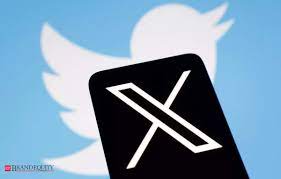
Elon Musk has announced that two new premium subscription tiers for the social media network X, formerly known as Twitter, will soon be available.
"One is lower cost with all features, but no reduction in ads, and the other is more expensive, but has no ads," Musk said on a post on X.
Since regaining control of the platform in October 2022, Musk has been attempting to increase revenue by charging users and luring back advertisers who had stopped purchasing advertising after he dismissed the majority of staff members and dissolved the content moderation teams.
Musk has admitted that the platform's revenue has suffered and has placed the blame for the pressure activists have put on advertisers.
He did not elaborate on the subscription levels, but earlier this week, X published a test case that included a number of limitations for users who choose not to pay for the service.
As a test scenario, X began charging $1 to new customers in the Philippines and New Zealand for platform access.
The firm stated on its website that new users who choose not to subscribe would only be allowed to perform "read only" activities, like reading posts, watching videos, and following accounts.
Reduced spam, platform manipulation, and bot activity are the goals of the platform's "Not A Bot" membership option.
Larger internet firms have also dabbled in combining subscription and ad-supported services. Although YouTube, owned by Alphabet, offers both free and paid ad-supported plans, Netflix's ad-supported options are also paid for, albeit at a lower cost.
Similar to X, YouTube is powered by user-generated content and pays creators a portion of its subscription fees. Content producers receive a portion of X's ad revenue, but the company did not say whether or not to pay them under ad-free subscription arrangements.
Musk began charging $8 a month for the blue tick membership service in order to make money, and he also gave businesses discounts for placing advertisements on the site.
However, sponsors did not want their advertisements to appear next to offensive content because the company was criticised for its inadequate content control.
Following the dissemination of false material on its platform in the wake of Hamas' attack on Israel, the European Commission opened an inquiry into X last week to determine whether it conforms with new tech regulations regarding unlawful and harmful content.
(Source:www.ndtv.com)
"One is lower cost with all features, but no reduction in ads, and the other is more expensive, but has no ads," Musk said on a post on X.
Since regaining control of the platform in October 2022, Musk has been attempting to increase revenue by charging users and luring back advertisers who had stopped purchasing advertising after he dismissed the majority of staff members and dissolved the content moderation teams.
Musk has admitted that the platform's revenue has suffered and has placed the blame for the pressure activists have put on advertisers.
He did not elaborate on the subscription levels, but earlier this week, X published a test case that included a number of limitations for users who choose not to pay for the service.
As a test scenario, X began charging $1 to new customers in the Philippines and New Zealand for platform access.
The firm stated on its website that new users who choose not to subscribe would only be allowed to perform "read only" activities, like reading posts, watching videos, and following accounts.
Reduced spam, platform manipulation, and bot activity are the goals of the platform's "Not A Bot" membership option.
Larger internet firms have also dabbled in combining subscription and ad-supported services. Although YouTube, owned by Alphabet, offers both free and paid ad-supported plans, Netflix's ad-supported options are also paid for, albeit at a lower cost.
Similar to X, YouTube is powered by user-generated content and pays creators a portion of its subscription fees. Content producers receive a portion of X's ad revenue, but the company did not say whether or not to pay them under ad-free subscription arrangements.
Musk began charging $8 a month for the blue tick membership service in order to make money, and he also gave businesses discounts for placing advertisements on the site.
However, sponsors did not want their advertisements to appear next to offensive content because the company was criticised for its inadequate content control.
Following the dissemination of false material on its platform in the wake of Hamas' attack on Israel, the European Commission opened an inquiry into X last week to determine whether it conforms with new tech regulations regarding unlawful and harmful content.
(Source:www.ndtv.com)














